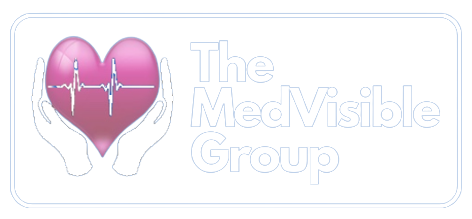The Concerning Trend: Extended Healthcare Credentialing Times
June 7, 2023
As a longtime healthcare consultancy, we have observed a significant shift in the processing times of credentialing requests in recent years. Historically, credentialing companies were able to complete these requests within a reasonable timeframe of 30-90 days. However, the average processing time has now extended to a concerning 6-9 months. This alarming trend has raised several concerns within the healthcare industry. In this blog post, we will delve into the reasons behind this shift and explore the best ways to mitigate these concerns.
Understanding the Credentialing Process
Before we delve into the reasons behind the extended processing times, it is essential to understand the credentialing process. Credentialing is the process by which healthcare providers verify and validate the qualifications, experience, and competence of medical professionals. It involves reviewing and assessing various documents, such as educational degrees, licenses, certifications, work history, malpractice claims, and more.
Reasons for Extended Processing Times
1) Increased Demand for Healthcare Services: The demand for healthcare services has surged in recent years, resulting in a higher number of providers seeking credentialing. This influx of requests has overwhelmed credentialing companies, leading to longer processing times.
2) Evolving Regulatory Requirements: The healthcare industry is subject to evolving regulatory requirements, which have become more stringent over time. Credentialing companies must comply with these regulations, resulting in increased scrutiny and meticulousness during the credentialing process.
3) Growing Complexity of Provider Networks: Healthcare organizations are expanding their networks to include a broader range of specialists, making the credentialing process more intricate. Verifying and validating the diverse qualifications and specialties of providers can be a time-consuming task.
4) Inefficiencies in Credentialing Systems: Some credentialing companies still rely on outdated systems and manual processes, which can slow down the entire process. Lack of automation, redundant paperwork, and communication gaps contribute to delays.
Mitigating the Concerns
1) Implement Technology and Automation: Credentialing companies should invest in advanced technologies and automated systems to streamline the credentialing process. These systems can help reduce manual errors, automate document verification, and enhance communication between providers, credentialing companies, and healthcare organizations.
2) Enhance Collaboration and Communication: Effective collaboration and communication among all stakeholders involved in the credentialing process can significantly reduce delays. This includes establishing clear lines of communication, utilizing secure online portals, and leveraging digital platforms for document sharing and updates.
3) Standardize Credentialing Requirements: Establishing standardized credentialing requirements across healthcare organizations can simplify the process. This would enable providers to submit a uniform set of documents, reducing the burden of gathering and verifying multiple sets of credentials.
4) Prioritize Credentialing Backlogs: Credentialing companies should prioritize addressing backlogs by employing additional staff or outsourcing to third-party vendors. This proactive approach can help expedite the processing times for pending requests.
5) Advocate for Industry-wide Changes: Healthcare consultancies, industry associations, and stakeholders should collaborate to advocate for industry-wide changes to streamline the credentialing process. This could include regulatory reforms, promoting the adoption of electronic credentials, and sharing best practices among credentialing companies.
The extended processing times for credentialing requests in the healthcare industry have become a growing concern. Understanding the underlying reasons for this trend is crucial to identifying effective solutions. By embracing technology, improving collaboration and communication, standardizing requirements, prioritizing backlogs, and advocating for industry-wide changes, healthcare organizations can mitigate these concerns and ensure a more efficient credentialing process. A streamlined credentialing system is essential for maintaining a competent and qualified healthcare workforce and ultimately enhancing patient care and safety.
